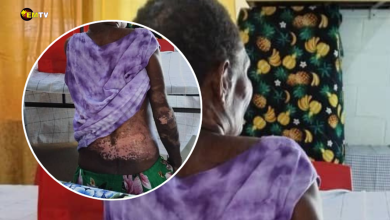By Rocky Issou
With only three days to go before Neglected Tropical Diseases (NTD) day on Monday the 30th of January 2023, a call for leaders, partners and communities to unite and confront inequalities that drive NTD’ has been made by the World Health Organisation’s Country Representative Director General Dr Sevil Huseynova.
NTD’s have been called neglected because they do not get the attention and funding unlike other diseases.
In PNG, half a million people are affected by NTDs and the World Health Organisation along with its partners and the National Department of Health are doing their utmost best to ensure the education awareness and prevention of this diseases are being carried out.
For twenty years Dr Sevil Huseynova has been engaged with the World Health Organisation she is now the PNG country representative for WHO and she spoke about the diverse group of 20 conditions that is widespread and highlighted the eight diseases found in the country.
“Papua New Guinea has eight of these diseases which are prevalent and affect over half a million people. Lymphatic Filariasis, Yaws, Leprosy, Scabies, Soil Transmitted Helminthiasis, Trachoma, Dengue Buruli Ulcer are among those that could be prevented and treated and eventually eliminated.” Dr Huseynova said.
In the countdown to World NTD’s day this Monday the call was made by Dr Huseynova for unification by all stakeholders to confront NTD’s.
“On occasion of World Neglected Tropical Diseases day of 2023 we are calling on everyone: leaders, partners scientific organizations and communities, to confront inequalities that drive NTDS, we need to make bold and sustainable investments to free our most vulnerable communities from NTDs.” said Dr. Huseynova.
Dr Huseynova further added that these diseases are preventable and
treatable when detected early and shared why delay in seeking treatment is deadly.
“Delay in seeking treatment and care can result in life-long disability and death, people should have the information they need and access and availability to essential health services near their homes. Community health workers if trained can deliver effective health services, especially to people in hard to reach areas.” Dr Huseynova added.
It is vital awareness is carried out on NTD; s as it affects the world’s poorest people, NTDs impair physical and cognitive development, contribute to mother and child illness and death, and make it difficult to farm or earn a living, it limits productivity in the workplace and the stigma that comes with the disease can have severe emotional impacts.






